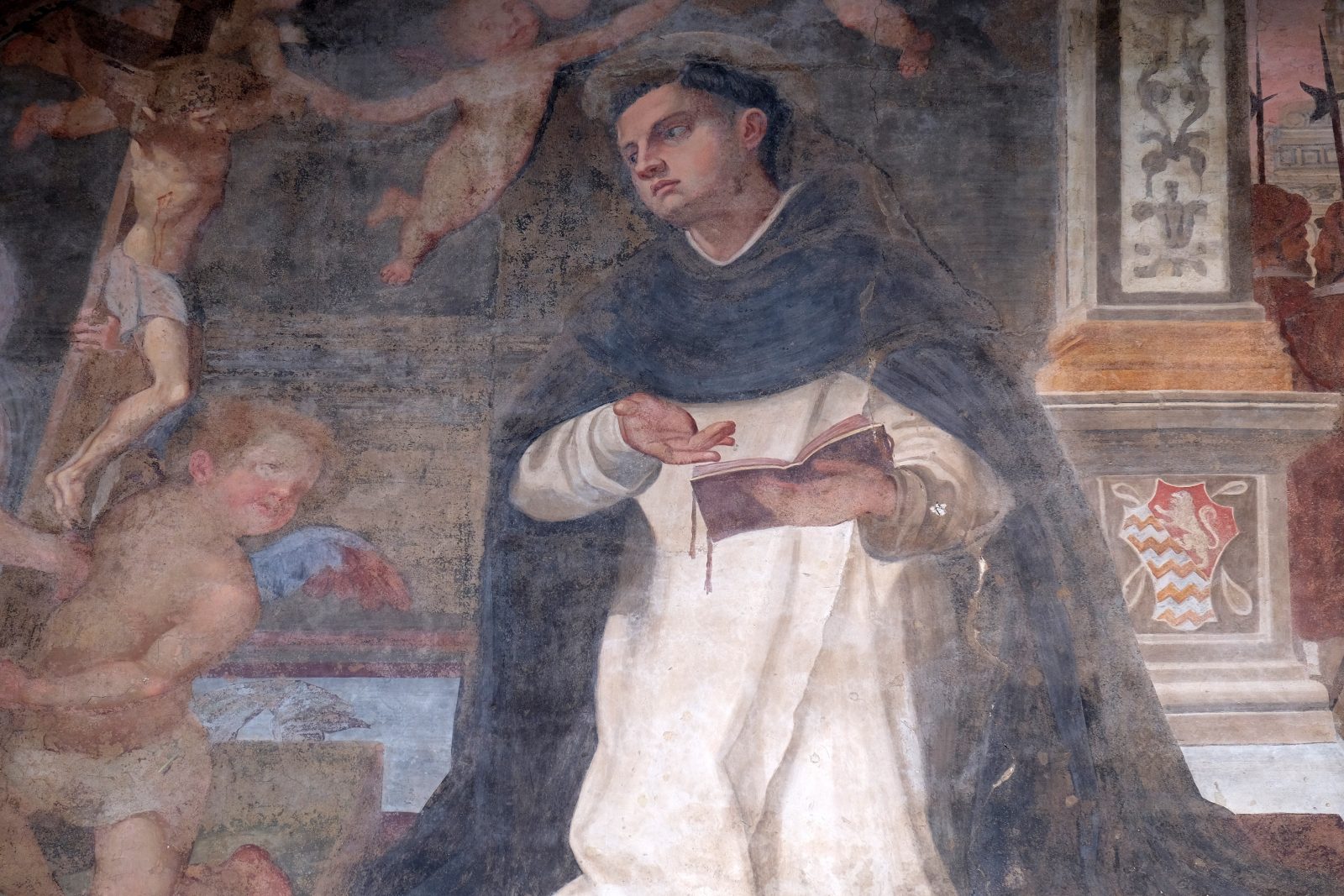


William Dembski: Why Intelligent Design Matters
On this ID the Future intelligent design pioneer William Dembski unpacks one of his chapters in The Comprehensive Guide to Science and Faith: Exploring the Ultimate Questions about Life and the Cosmos, which Dembski co-edited with Joseph Holden and episode host Casey Luskin. The chapter, “Why Intelligent Design Matters,” focuses on ID’s cultural implications. Dembski notes that atheists use mindless evolution to provide a God-free explanation for life and the universe. Intelligent design checks that move, showing that blind material processes couldn’t have created many things in nature, much less the cosmos itself. Intelligent design is the better explanation. What about the idea that an alien created, say, the first life on Earth (intelligent design without the need for God)? Dembski says that idea–one that some atheists have suggested as a fallback explanation—is a poor explanatory substitute for an immaterial intelligent designer.

ID Pioneer William Dembski on His Rocky and Rewarding Journey
On today’s ID the Future intelligent design pioneer William Dembski tells the story of his rocky journey into and out of higher education, the reasons for his sabbatical from the ID movement, his recent success as an entrepreneur, and his return to intelligent design work. Along the way Dembski bats down a mistaken rumor about his sabbatical. The occasion for his conversation with host Casey Luskin is the recent anthology Dembski and Luskin contributed to and helped edit, The Comprehensive Guide to Science and Faith: Exploring the Ultimate Questions about Life and the Cosmos.

Jay Richards on the Art of Answering Theistic Evolutionists
On today’s ID the Future, philosopher Jay Richards offers advices on engaging with evolutionists over the issues of origins, evolution, and intelligent design. In his conversation with host Casey Luskin, he says that if someone tells you he’s a theistic evolutionist, first find out what he means by theism and evolution. The latter term, in particular, can have widely varying meanings, and the average lay persons who see themselves as theistic evolutionists likely see God as actively and creatively working in the history of life to steer evolutionary outcomes, including the origin of humanity. What they may not realize is that such a view takes them well outside the bounds of what academic theistic evolutionists generally mean by the term evolution, particularly those theistic evolutionists who publicly defend evolutionary theory generally. Richards says that these academics hold to an internally incoherent view in many cases, and he encourages intelligent design proponents to surface that incoherence whenever the opportunity arises. For those who are willing to consider the evidence for intelligent design, Richards lists what he sees as the most rhetorically effective lines of evidence to present to people. The occasion for the conversation is Richards’ two chapters in the recently released Harvest House anthology, The Comprehensive Guide to Science and Faith.

John Bloom on the Match that Lit the Scientific Revolution
On today’s ID the Future Biola University physicist John Bloom discusses his chapter in the recent anthology The Comprehensive Guide to Science and Faith, co-edited by host Casey Luskin. Bloom’s focus in his contributed chapter is the pivotal role of Christianity in the rise of science. Bloom, the academic director of Biola’s master’s program in science and religion, draws on his PhD training in physics but also on his PhD in ancient Near Eastern studies and his study of the history of science. Here he argues that while the Babylonians and Greeks contributed some discoveries and insights that would eventually play into the rise of science, science did not take off, was not born, until a cluster of crucial ideas drawn from the Judeo-Christian worldview infused Western thought. Only then did astrology become astronomy, alchemy chemistry, and the great adventure of scientific discovery begin in earnest. Tune in as Bloom and Luskin discuss the ancient predecessors of science and some of the key founders of science, including Copernicus, Galileo, Kepler, and Bacon, along with crucial ideas drawn from the Judeo-Christian worldview that lit the match. And find your copy of The Comprehensive Guide to Science and Faith here.

Emily Reeves Previews Dallas Science/Faith Conference 2022
On this ID the Future, host Andrew McDiarmid sits down with Emily Reeves, one of the speakers for the January 22, 2022, Dallas Science and Faith Conference. The two walk through the lineup of speakers for the conference (Stephen Meyer, Brian Miller, Casey Luskin, Ray Bohlin, and others), tease some of the talks, and discuss how to join the one-day event live, either in person in the Dallas area or online. For more about the conference, slated for this Saturday, and to sign up, go here.

Casey Luskin on Why Intelligent Design is Worth Defending
Today’s ID the Future spotlights The Comprehensive Guide to Science and Faith. Host Eric Anderson interviews one of the anthology’s co-editors and contributors, geologist Casey Luskin. The two focus on just one of Luskin’s contributed essays, one that addresses two primary questions: Is intelligent design true? And is it worth expending the energy to defend it against powerful opposition? Luskin answers both questions in the affirmative, and explains why he sees the new anthology as a great resource in the cause of intelligent design.

Max McLean Talks about His New C.S. Lewis Movie
On this ID the Future award-winning actor Max McLean joins host John West to discuss his new film, The Most Reluctant Convert: The Untold Story of C.S. Lewis. West and McLean discuss how McClean came to do stage plays focused on Lewis’s work, and how he and filmmaker Norman Stone came to create a feature-length dramatic film in the midst of the coronavirus shutdown. McLean tells about Lewis’s long and winding conversion from agnosticism to Christianity, and then he and West focus on those aspects of Lewis’s conversion centered on science, evolutionary theory, and rational theism. Key to Lewis’s move from agnosticism to idealism and eventually Judeo-Christian theism—his friend Owen Barfield and the question of the origin of reason. Lewis realized that Darwinian materialism gives us little reason to trust our reason (as Darwin himself conceded in one of his franker moments). Lewis determined that he should and inevitably does trust the human capacity to reason. And if that trust is based on something real, then we have strong grounds to distrust Darwinian materialism, Lewis decided. For more on Lewis’s views on science, evolution, intelligent design, and the rational case for theism, check out this Discovery Institute website on C.S. Lewis.

Pat Flynn and Stephen Meyer Talk Thomism and Intelligent Design
On today’s ID the Future, Return of the God Hypothesis author Stephen C. Meyer sits down with podcaster and philosopher Pat Flynn to discuss Meyer’s new book. Flynn notes that some contemporary followers of the great medieval Catholic philosopher Thomas Aquinas argue that the theory of intelligent design is incompatible with Thomism. In response Meyer, a philosopher of science and the director of Discovery Institute’s Center for Science and Culture, points out that some Thomists are fully on board with ID, and he offers reasons why he sees ID as fully compatible with Thomistic philosophy. Flynn and Meyer then move into a discussion of Meyer’s new book with a particular focus on the sections exploring the beginning of the universe and the fine tuning of the cosmos for life. The interview is used by permission of Pat Flynn.

C. S. Lewis and Intelligent Design
On the episode of ID the Future we bring you a production by Discovery Institute about C.S. Lewis and Intelligent Design. With contributions by Discovery Institute’s John West and philosophers Victor Reppert and Angus Menuge, we hear about Lewis’s early doubts about God based in part on an argument from undesign or “bad design” in nature, and how he moved from this position to developing multiple arguments for intelligent design. Another contribution he made to the intelligent design project wasn’t a specific argument but the example he set. As John West explains near the end of the episode, one of his greatest contributions was a commitment to free inquiry and open debate, one he modeled while a professor at Oxford University.